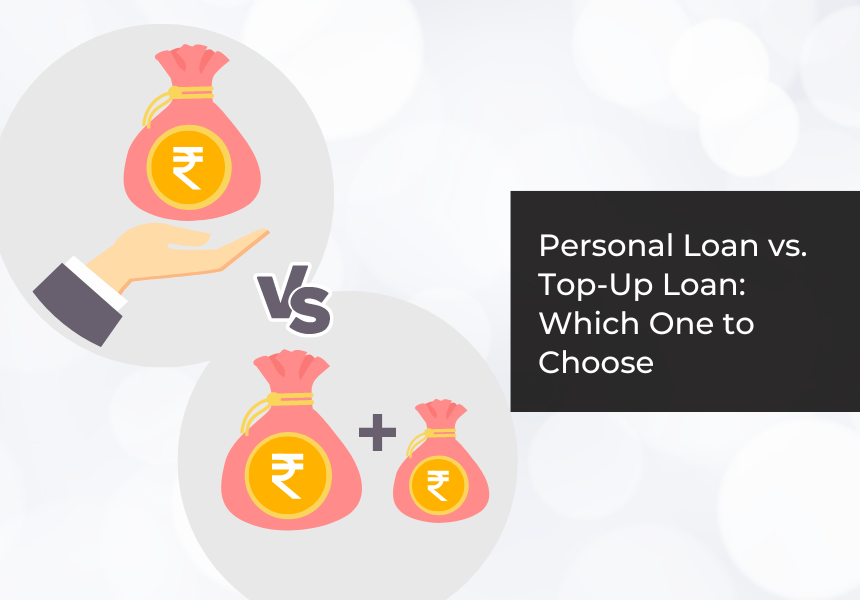
For financial assistance, both personal loans and top-up loans serve as valuable tools to meet immediate financial needs. Whether it’s funding a home renovation, consolidating debt, or covering unexpected expenses, these loan options provide a way to bridge the gap between aspirations and reality. While personal loans offer flexibility and a broad scope of use, top-up loans present a convenient extension to existing home loan facilities. Deciding between the two depends on various factors, including individual financial goals, repayment capabilities, and the purpose of borrowing. Here, we will explore the merits of both personal loans and top-up loans to help you make an informed choice tailored to your specific requirements.
What is a Personal Loan?
A personal loan is a type of unsecured loan provided by financial institutions to individuals for personal use. Unlike secured loans that require collateral, personal loans are granted solely based on the borrower’s creditworthiness and ability to repay. These loans offer a fixed amount of money, which can be used for various purposes, such as debt consolidation, home improvements, medical expenses, or funding special events. The borrower agrees to repay the loan over a predetermined period with regular instalments, making it a popular choice for those in need of quick funds without risking any assets.
What is a Top Up Loan?
A top-up loan is a financial product offered by lenders to existing home loan borrowers. It allows homeowners to borrow additional funds on top of their original home loan amount, provided they have already paid a significant portion of their existing loan and maintained a good repayment track record. The LoanTap top-up loan offers a convenient and cost-effective way to secure extra funds for various purposes, such as home renovations, education expenses, or addressing financial emergencies. It typically comes with a lower interest rate compared to other types of unsecured loans, making it an attractive option for those seeking supplementary funds while leveraging their property’s existing equity.
What is the difference between Personal Loan and Top-Up Loan?
| Basis | Personal Loan | Top-Up Loan |
| Meaning | A personal loan is a particular amount of money borrowed from a bank or other financial institution to cover any need or requirement. | You can borrow a certain amount of money above and beyond your current personal loan by utilising a facility offered by lenders. |
| Usage | A personal loan can be used to pay for anything, including home improvements, holidays, your child’s education, and even unexpected medical costs. Personal loans can be very helpful when it comes to financing business investments, automobile repairs, down payments for new homes, etc. | You can use a top-up loan to fulfil your own expenses, such as paying for your children’s education or other personal expenses, or to modify or build your home. The sum of the top-up loan, however, cannot be used for speculative purposes. |
| Eligibility | Any person who has a consistent, steady source of income is qualified to apply for a personal loan. | Not every person who has obtained a personal loan from a bank is eligible for a top-up loan. |
| Interest Rate | Depending on your credit history, tenure, income, occupation, etc., interest rates can vary. The rates are not fluctuating; they are fixed. | When compared to your home loans, top-up loans have slightly higher interest rates. Compared to the interest rates on a personal loan, this is really affordable. |
Conclusion
The choice between a personal loan and a top-up loan depends on individual circumstances and financial objectives. Personal loans provide flexibility and can be used for a wide range of purposes, making them suitable for those who need funds for various needs. A top-up loan from LoanTap offers an advantageous option for existing home loan borrowers seeking additional funds at a lower interest rate, leveraging the equity in their property. It is crucial to assess the specific requirements, repayment capabilities, and interest rates offered by lenders before making a decision. Ultimately, understanding one’s financial position and long-term goals will help in selecting the most suitable loan option to meet one’s needs effectively.







